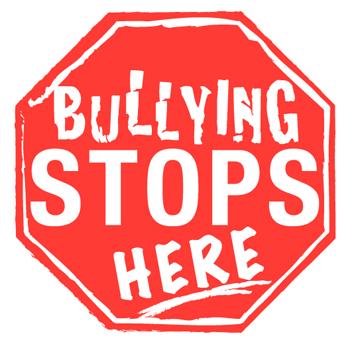School Counselor - Michella Fann
Page Navigation
BULLYING WILL NOT BE TOLERATED
-
BULLYING
Bullying is when one child picks on another child repeatedly. Bullying can be physical, verbal, or social. It can happen at school, on the playground, on the school bus, in the neighborhood, or over the Internet.
When Your Child Is Bullied- Help your child learn how to respond by teaching your child how to:
1. Look the bully in the eye.
2. Stand tall and stay calm in a difficult situation.
3. Walk away. - Teach your child how to say in a firm voice.
1. "I don't like what you are doing."
2. "Please do NOT talk to me like that."
3. "Why would you say that?" - Teach your child when and how to ask for help.
- Encourage your child to make friends with other children.
- Support activities that interest your child.
- Alert school officials to the problems and work with them on solutions.
- Make sure an adult who knows about the bullying can watch out for your child's safety and well-being when you cannot be there.
When Your Child Is the Bully
- Be sure your child knows that bullying is never OK.
- Set firm and consistent limits on your child's aggressive behavior.
- Be a positive role mode. Show children they can get what they want without teasing, threatening or hurting someone.
- Use effective, non-physical discipline, such as loss of privileges.
- Develop practical solutions with the school principal, teachers, counselors, and parents of the children your child has bullied.
When Your Child Is a Bystander
- Tell your child not to cheer on or even quietly watch bullying.
- Encourage your child to tell a trusted adult about the bullying.
- Help your child support other children who may be bullied. Encourage your child to include these children in activities.
- Encourage your child to join with others in telling bullies to stop.
BEFORE AND AFTER SCHOOL CHILD CARE
- During middle childhood, youngsters need supervision. A responsible adult should be available to get them ready and off to school in the morning and watch over them after school until you return home from work.
- Children approaching adolescence (11- and 12-year-olds) should not come home to an empty house in the afternoon unless they show unusual maturity for their age.
- If alternate adult supervision is not available, parents should make special efforts to supervise their children from a distance. Children should have a set time when they are expected to arrive at home and should check in with a neighbor or with a parent by telephone.
- If you choose a commercial after-school program, inquire about the training of the staff. There should be a high staff-to-child ratio, and the rooms and the playground should be safe.
- Help your child learn how to respond by teaching your child how to:


